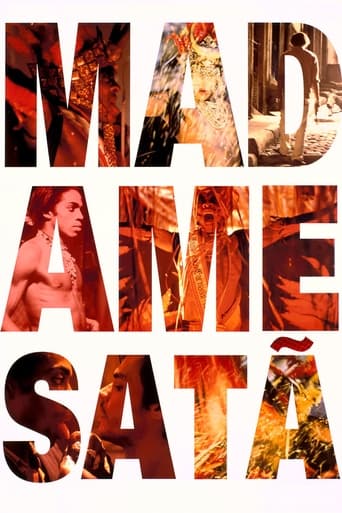jerisummers2
Spoilers contained, but only in a general sense, not specific! I watched this movie expecting something about drag queens or someone who could be considered significant in some way, hence the "based on a true story" blurb in the description, yet I can't find any reason why anyone would have made a movie about the primary character. I found him to be unlikable, unsympathetic and not even a good drag queen! This man, if the story is indeed based on fact, was totally lacking in any redeeming characteristics; cruel to his "friends," unattractive physically, a thief, liar, con man, a criminal, violent, talentless and ignorant. Apparently he was notable for winning a costume contest after spending ten years in prison and that warrants a movie about him? The other characters were just sad; Lurita and Taboo. I could not get a clear sense of whether he was lovers with Lurita or Taboo or they coexisted as a "family" unit of unwanted people who found comfort in each other, yet even then the primary character was so cruel to Taboo that it sickened me. OK, I get that this time period, this neighborhood, these people were poor, ignorant and had miserable lives, but what in this movie, this story, was worthy of making a movie about? I sat through this whole movie waiting for something noteworthy to happen, to make me care about these people, to explain why their lives were being portrayed and that moment never came. It was a waste of time and money for me. No point to it at all.
leandros
Madame Sata is one of the most colorful, agitating, controversial, shifting, restless, erratic films you could ever watch on silver screen. The protagonist is also the antagonist with his often irrational and aggressive behaviour, possibly a trademark of Joao Francisco himself on which the film is based on, although this could be one of the film's flaws. The characters are as lively and colorful as he is and the acting is quite well, too.An activist and a pioneer in many ways in the Brasil of 1930's, he could be seen as a gay activist, a transvestite activist, a swinger activist, a one-man-show pioneer, a strong, willful, self-confident and proud individual who defies almost all possible rules, regulations and conventions of his time, and not because he wants to be standing out.Although the story line and Francisco's character are quite fanciful and interesting, the dialogues seem to be pretentious, the character build-up insufficient and the editing quite confusing, causing the overall feel to be incomplete and puzzling.
goyoimdb
I feel proud about the Brazilian cinema of the last years. Although facing many difficulties, mainly financial ones, the Brazilian film-makers are proving that it is possible to make a truly high level cinema here. "Madame Satã" is just another example of this new Brazilian cinematography. Excellent photography, which really brings to the screen the mood of 30's bars and nightclubs from Lapa (Rio de Janeiro traditional bohemian neighbourhood, known also for its violence). The camera is "drunk" and "high" in many moments, in others is able to show tenderness in an ultra violent and uncontrolable character (the scenes where João Francisco takes care of Laurita's baby). The cast is excellent, with a great merit of young Lázaro Ramos, performing a character that has everything to lead to exageration or to a ridiculous acting; even though, Lázaro manages to bring to life in a realistic way someone who is a homosexual with feminine behaviour in some times and in other times is a scary fighter, who could deal with 3 or 4 opponents bare handed. The main achievement of the film, though, in my opinion, is that the director wanted to show the personality of João Francisco, not worrying too much in telling a story. The plot is almost absent, we are invited to make part of João Francisco's turbulent, violent and difficult life through Lapa's gethos and bars, dealing with prostitutes, police, thugs and dangerous people. We can understand why Francisco,later called "Madame Satã" lived that way (even though we may not agree with it) , having in one hand the fascination for a fairy tale world of fantasy, with songs in French and taking care of a baby and in the other hand dealt with streetfights, robbery and eventual imprisonments in jail. If it is difficult for someone to be poor, black and homosexual in nowaday's Brazil, imagine in the 30's! Great movie, great acting, great photography, great editing, the only thing I can do is give it a 10!
mark-783
What a total surprise. One sunny Afternoon, my associate and I wander into a dark little cinema in Cannes to see a little pubicised film.From the moment the the turquoise beads on the bead curtain parted, and the rich tones of a Brazilian voice, spoke, we were mesmerised.An incredible mix of doom, dispair and triumph in abject failure and disaster.MUST BE SEEN!!!



